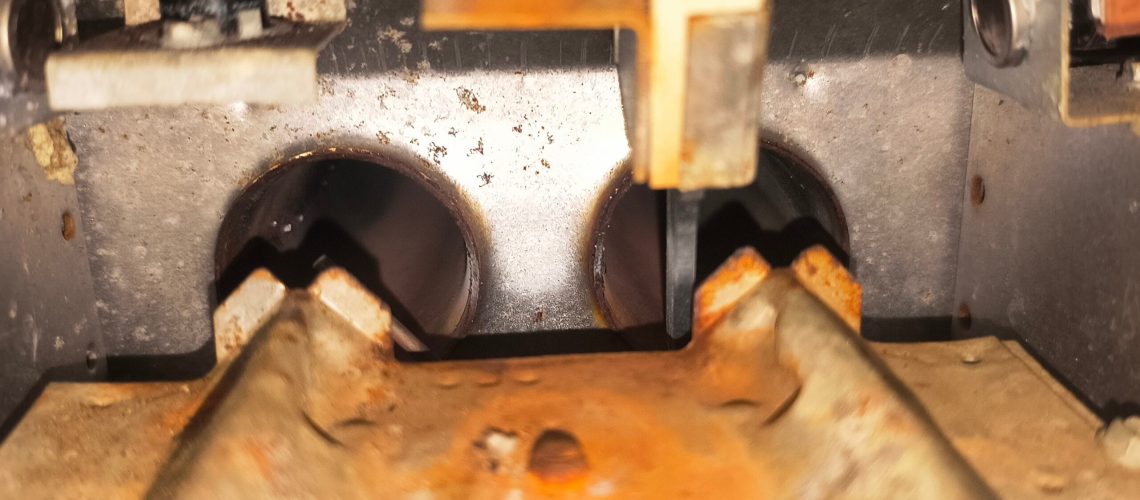As a homeowner, one of the last things you want to deal with is an HVAC system failure, especially during summer’s heat or winter’s chill. Not only can HVAC breakdowns be inconvenient, but they can also be costly to repair or replace. Thankfully, with some proactive care and regular attention, you can avoid unexpected failures and extend the life of your system. Here’s what you need to know.
Regular Maintenance – The Key To Preventing HVAC System Failures
Your HVAC system comprises complex parts that require routine maintenance to function correctly. One of the most important steps is to schedule regular tune-ups with a licensed HVAC technician. Ideally, your system should be serviced at least once a year—once before the cooling season and once before the heating season.
During these visits, the technician will:
- Inspect and clean filters
- Check refrigerant levels
- Test system performance and airflow
- Clean the coils and blower
- Inspect the ductwork for leaks
- Lubricate moving parts
This regular maintenance helps identify minor issues before they become costly repairs or major breakdowns. If you skip these inspections, you risk your system running inefficiently or failing when you need it most.
Change the Air Filter Regularly – Makes A Big Difference
This simple but crucial step can make a big difference in the health of your HVAC system. Dirty filters restrict airflow, causing the system to work harder than it should. This leads to higher energy bills, unnecessary wear on components, and the potential for a system failure. Most HVAC systems recommend changing the filter every 1-3 months, but this depends on the type of filter and how often your system runs.
If you have pets or live in an area with high dust or pollen levels, you may need to change your filter more often. Make a habit of checking it monthly to ensure it’s clean and functioning correctly.
Keep the Area Around Your HVAC Units Clear – For Effeciency
Both your indoor and outdoor units need space to operate efficiently. Ensure that the area around your furnace and air handler is free from clutter and that nothing obstructs airflow. Clear away leaves, branches, and other debris for your outdoor condenser unit to ensure it can breathe. If these areas are blocked, the system will struggle to cool or heat your home effectively, potentially leading to overheating or damage.
If vegetation grows too close to your outdoor unit, trim it back. This can help maintain proper airflow and prevent any buildup that could cause the system to fail prematurely.
Listen for Unusual Sounds
HVAC systems are designed to operate quietly, so if you start hearing strange sounds—like grinding, squealing, or rattling—take it seriously. These noises often indicate a problem, whether it’s a loose part, a failing motor, or something more serious. Sometimes, these sounds tell you what’s going on.
Don’t wait for the system to break down if you notice any unusual sounds. Contact an HVAC professional to diagnose the issue. The sooner you catch the problem, the easier and cheaper it is to repair.
Monitor the Temperature and Airflow
Another good practice is to regularly monitor your system’s performance. Check the temperature in your home and feel the airflow from your vents. If you notice that the air isn’t as cool or warm as it should be, or if airflow seems weak, it could indicate a problem with your HVAC system. A drop in performance is often one of the first signs of a failing component or a refrigerant leak.
If you notice uneven temperatures throughout your home, it might also point to issues with your ducts or vents. Proper airflow is essential for your system to operate efficiently, and any blockage can lead to further problems.
Keep an Eye on Your Thermostat
Sometimes, the issue isn’t with the HVAC unit but the thermostat. A malfunctioning thermostat can cause your HVAC system to run improperly or not at all. Make sure your thermostat is set correctly and calibrated to the appropriate temperature. If the settings appear accurate but the system isn’t responding, it could be time to replace the thermostat.
In addition, consider upgrading to a smart thermostat. These devices can help you monitor your system’s performance more closely, give you more control over energy usage, and even alert you when maintenance is needed. They are also excellent for optimizing your HVAC system’s efficiency, saving you money in the long run.
Insulate and Seal Your Home
One often overlooked aspect of maintaining your HVAC system is ensuring your home is adequately insulated and sealed. Gaps in your doors, windows, or attic allow warm or cool air to escape, forcing your HVAC system to work harder to maintain a comfortable temperature. By adding insulation to attics, walls, and even around windows and doors, you help keep your system running efficiently.
Sealing ductwork is another crucial step. Leaks in your duct system can reduce airflow, causing your system to work overtime and potentially lead to a breakdown. Notice a significant increase in your home’s energy bills or inconsistent temperatures. It might be time to have your ducts inspected for leaks.
Be Mindful of Your System’s Age
Like all appliances, HVAC systems don’t last forever. On average, an HVAC system will last 10-15 years, but this can vary depending on usage and maintenance. Suppose your system is approaching this age range, and you start noticing persistent issues or inefficiencies. In that case, it may be time to start thinking about replacement. While a new system can require a more significant upfront investment, it can save you money on repairs and energy bills in the long run.
If unsure of your system’s age, check the manufacturer’s label or consult a home inspection company or HVAC professional. They can better explain your system’s condition and help you plan for replacement.
Know When to Call a Professional
Finally, always trust your instincts. If something doesn’t feel right with your HVAC system, or if you notice a problem that you can’t fix yourself, it’s essential to call in a professional. Attempting to resolve complicated issues on your own can often make the situation worse and lead to more expensive repairs down the line.
A home inspection company, like Upchurch Inspection, can help identify potential HVAC issues before they become significant problems. Getting a professional’s opinion during your home inspection can save you the hassle of dealing with an unexpected system failure.
By staying on top of maintenance, monitoring performance, and addressing issues early, you can keep your HVAC system running smoothly for years to come, saving time and money.


